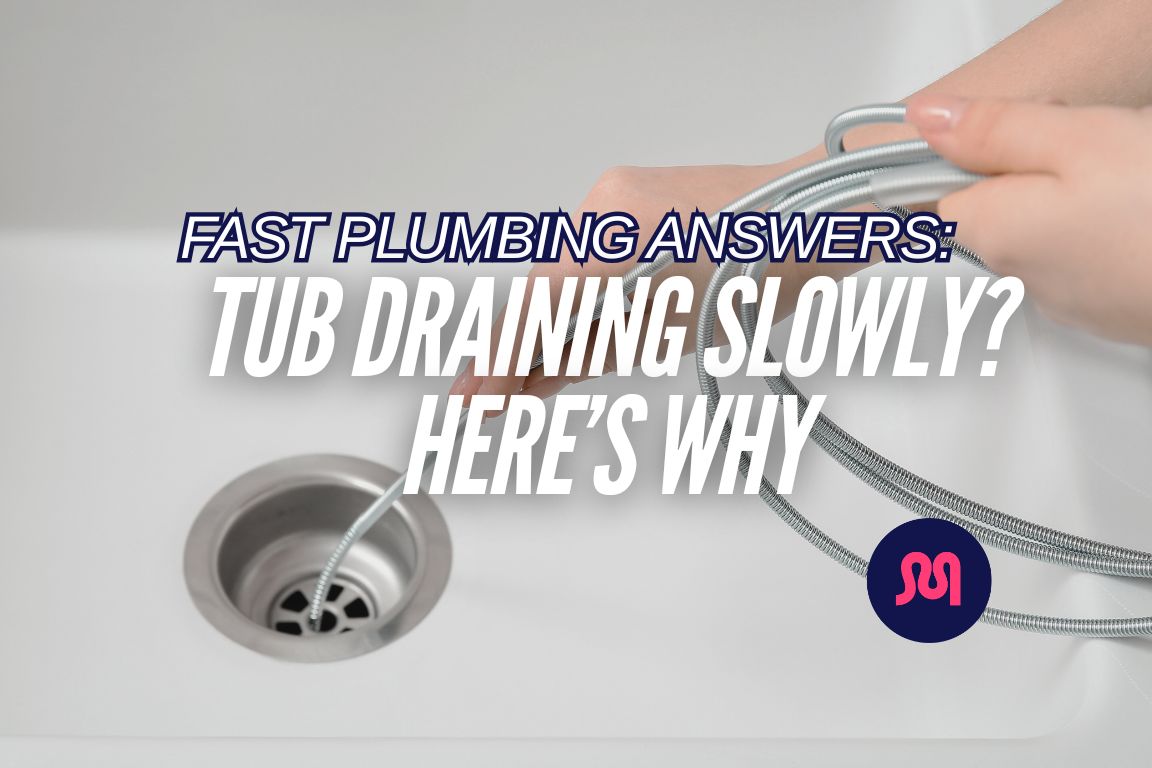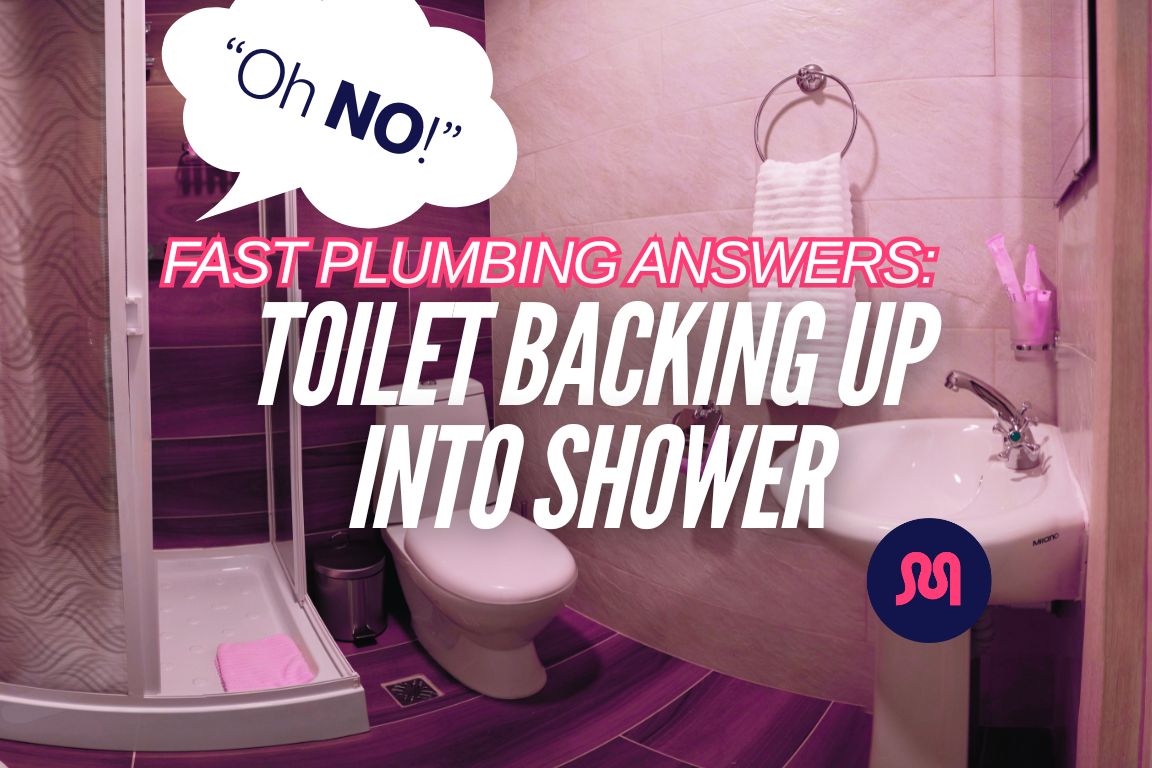Yes, Gas Tankless Water Heaters Are Good
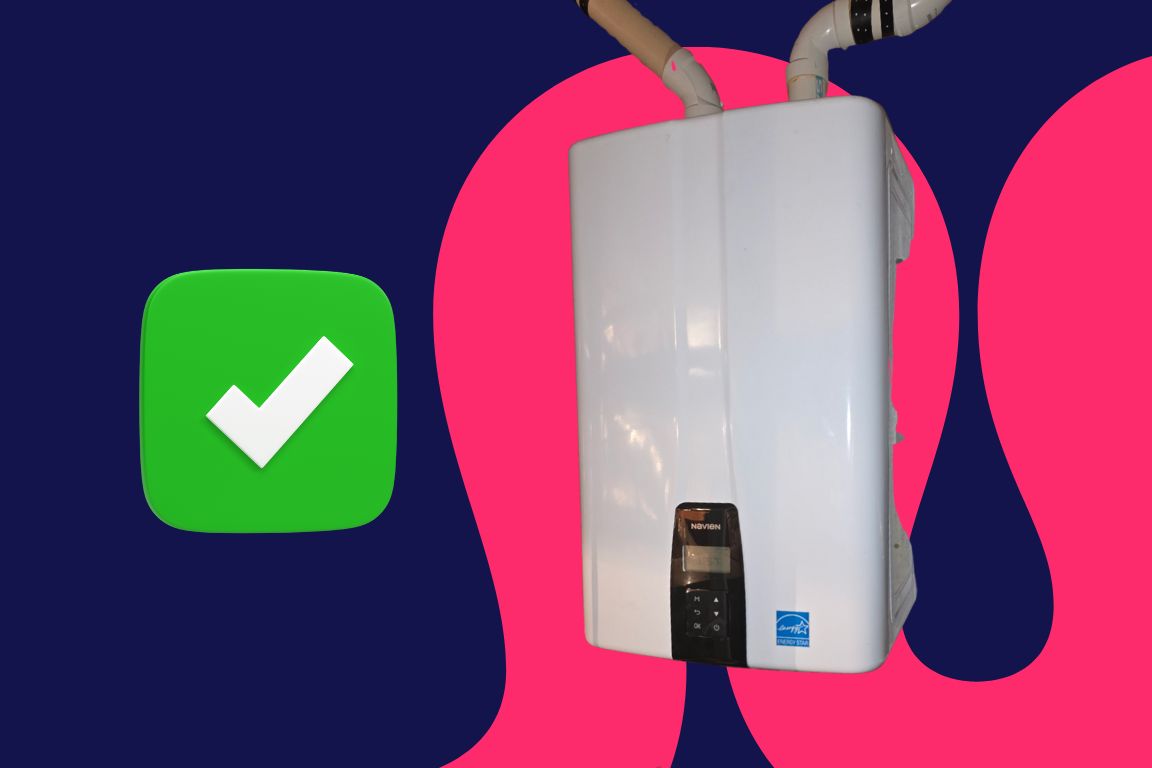
table of contents
table of contents
Your gas water heater tank just sprung a leak- again. A neighbor mentioned a tax credit for going tankless, but the installation cost seems a bit high. Before you make the investment, you need to know if a tankless water heater is worth the cost for your specific house.
The truth: If you’re going tankless, using natural gas is the best possible scenario to do so.
At Mother, we’re committed to delivering the best possible solution for your home’s unique plumbing needs. Tankless technology is far better suited to gas and propane than electric, and our Master Plumbers recommend, install and maintain them regularly.
A gas tankless water heater is the most effective, efficient form of tankless tech- if your home’s already receiving natural gas or propane, there’s a much clearer path to long-term payback than from electric systems. Our Master Plumber likes Rinnai systems, and is keeping an eye on new tankless units from A.O. Smith that descale themselves.
Want a gas tankless in Dallas? Call Mother 24/7- our team of licensed tankless techs will set you up with priority scheduling!
{{tankless-water-heater-installation="/services/tankless-water-heater-installation"}}
Gas Tankless Water Heaters: True or False?
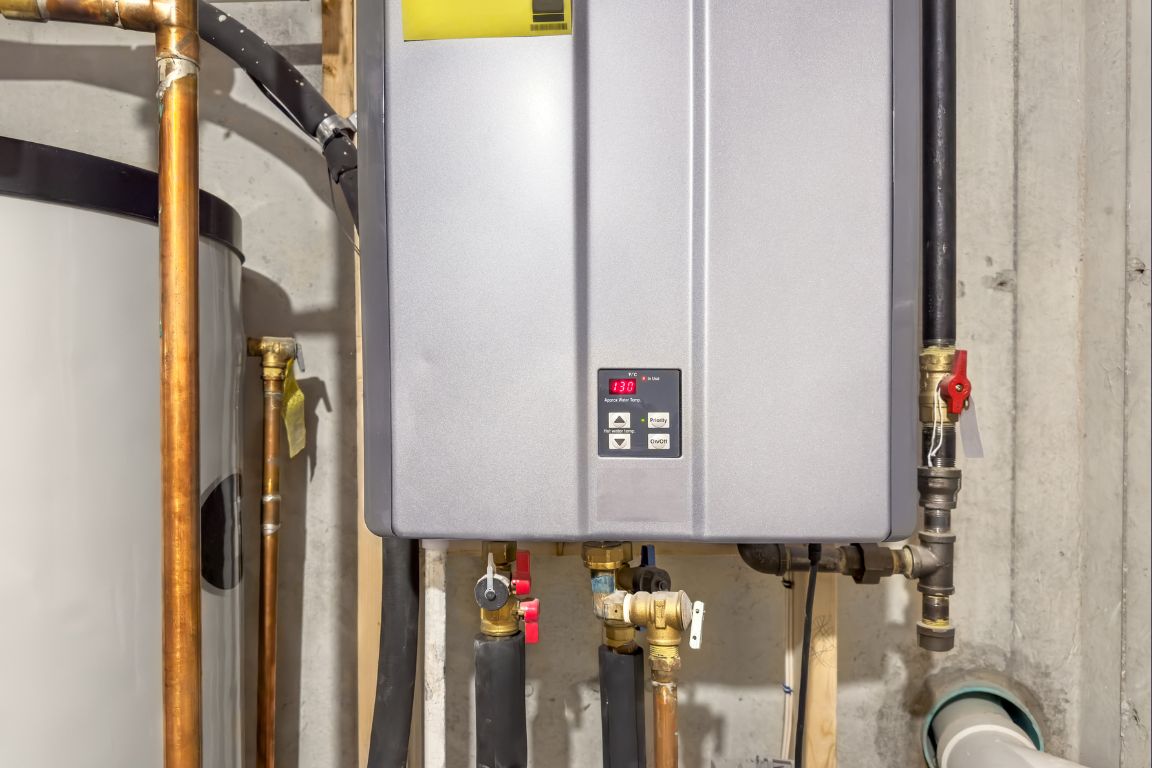
If you’re switching from a gas water heater tank to a tankless, you’re doing a lot of research. But conflicting online articles make it hard to separate truth from fiction.
Our plumbers install 60+ tankless systems in gas-powered homes every year- use their expertise to get some real answers to your questions.
Here is the truth behind the core benefits when applied specifically to high-efficiency gas tankless systems:
True or False?: Gas tankless systems reduce mineral scaling, corrosion, leaks, and overall system inefficiency.
ANSWER: True- if you commit to maintenance.
Gas tankless water heaters eliminate major efficiency and repair issues inherent to conventional tanks:
- Standby heat loss
- Tank corrosion
- Tank leaks
But getting rid of your tank doesn’t mean hard water scaling issues disappear- they’re just less visible. The heat exchanger and ignition components in your tankless are susceptible to scaling and sediment buildup.
Scheduling annual flushing and descaling of your gas tankless is non-negotiable. Skip the maintenance, and you’ll reduce (or eliminate) all the efficiency benefits of switching.
{{tankless-descale="/services/tankless-descale"}}
True or False?: Gas tankless systems save more money than gas water heater tanks.
ANSWER: True- if your home uses a lot of water.
Gas tankless units save money on fuel consumption due to their efficiency. However, the high initial installation cost-which usually includes gas line resizing and installing specialized venting- makes savings difficult for smaller homes.
The total lifetime savings are far more beneficial for high-usage households after a 6-10 year payback period.
True or False?: Gas tankless systems provide instant, on-demand hot water.
ANSWER: “Instant” and “on-demand” are two different things!
Gas tankless water heaters do provide on-demand hot water. These systems are designed to be powerhouses- you’ll get continuous hot water to multiple fixtures at the same time.
But that doesn’t mean “instant”- it takes a few seconds for the water to heat up when you turn on the faucet. Step into a shower too fast, and you’ll experience a “cold water sandwich”- a burst of cold water that remained in your pipes between uses.
{{fast-plumbing-answers-tankless-cold-water-sandwich="/blogs/fast-plumbing-answers-tankless-cold-water-sandwich"}}
Comparing Gas Tankless Systems and Gas Water Heater Tanks
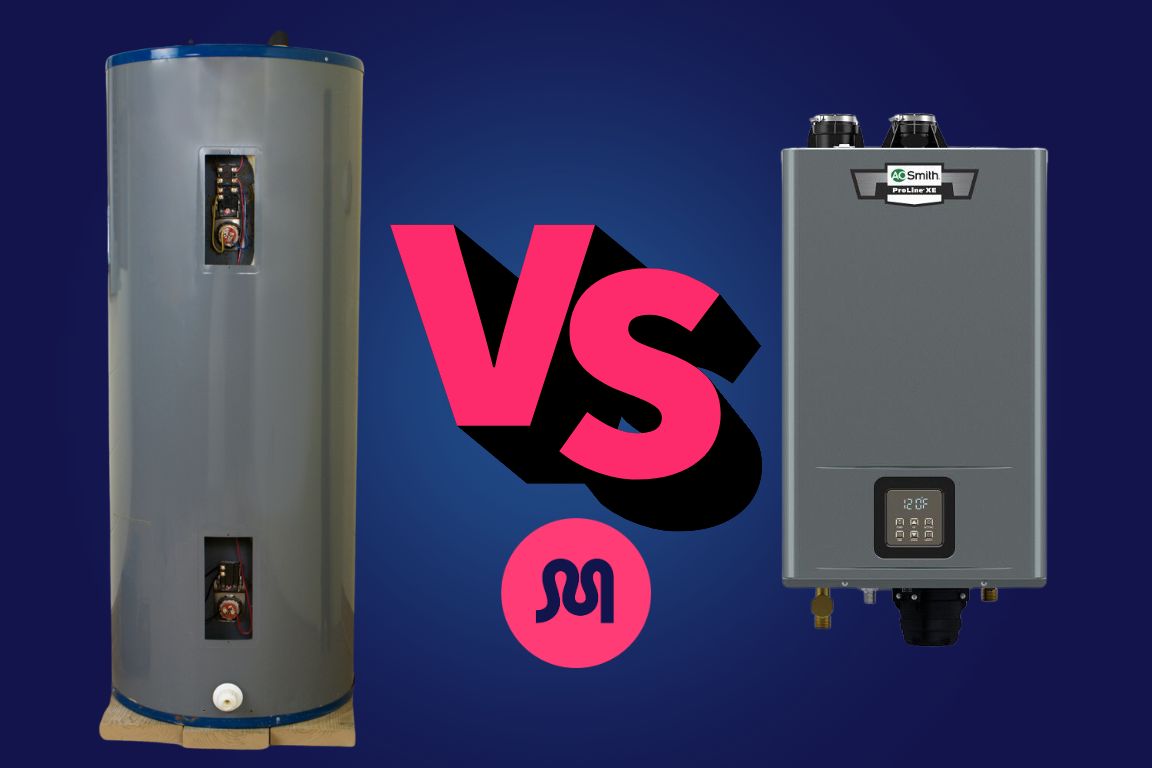
For gas-powered homes, the choice between staying with a water heater tank and going tankless comes down to upfront cost vs. long-term efficiency.
The cost to purchase and maintain a gas tankless is 2-2.5x higher than a conventional tank unit. This is due to mandatory infrastructure upgrades to your home’s existing gas lines and venting, as well as the higher cost to purchase the unit itself.
That said, homes with high daily water usage stand a great chance to recoup their installation cost by going tankless. Plus, your 3rd kid won’t ever run out of hot water in the shower again.
This comparison highlights the trade-off between the low upfront cost of a tank and the superior performance and lifespan of a tankless unit.
Gas Tankless Systems vs. Electric: There’s No Comparison
In a whole home setting, gas tankless systems are universally superior to electric tankless. It meets peak hot water demand better, costs less to install, and offers a gr eater chance at payback.
We asked our Responsible Master Plumber Steven Smith how often he installs gas tankless units vs. electric. “100% gas,” Steven told us. “We haven’t installed a single electric tankless in the last year- the last one I personally installed was 5 years ago.”
Let’s compare the benefits, costs and energy demands of gas and electric tankless systems.
Why Gas Tankless Systems Are So Much Better Than Electric
The difference between gas and electric comes down to physics. It takes massive amounts of power to instantaneously heat water, and natural gas is simply a more powerful and less complicated fuel source to deliver this energy than electricity.
Here are the four key reasons why gas tankless is the better choice for whole-house use:
- Gas just performs better: A high-end gas tankless heater provides the BTU equivalent of approximately 60,000 Watts of electricity. Attempting to deliver that kind of heating power electrically would draw over 250 amps- more than the capacity of many standard homes. Gas provides genuine, continuous, high-flow hot water.
- Less expensive installation: While gas requires costly venting and line resizing, the expense is rarely as significant as an electric service panel upgrade. Electric tankless often forces the homeowner into a $3,000 to $5,000+ electrical project, whereas gas infrastructure is typically limited to the utility area.
- You’re more likely to achieve payback: Because the total initial installation cost for a gas unit (venting + gas line) is typically lower than the total installation cost for an electric unit (unit + electrical service upgrade), the gas system has a much shorter break-even point. You are far more likely to realize a positive return on investment with a gas unit than with an electric one.
- Less home power strain: Gas units run on a low-amperage circuit, meaning they do not compete with other major household appliances (A/C, oven, dryer). Electric tankless units can strain a home's capacity when multiple high-draw appliances run simultaneously.
The 4 Best Times to Buy a Gas Tankless
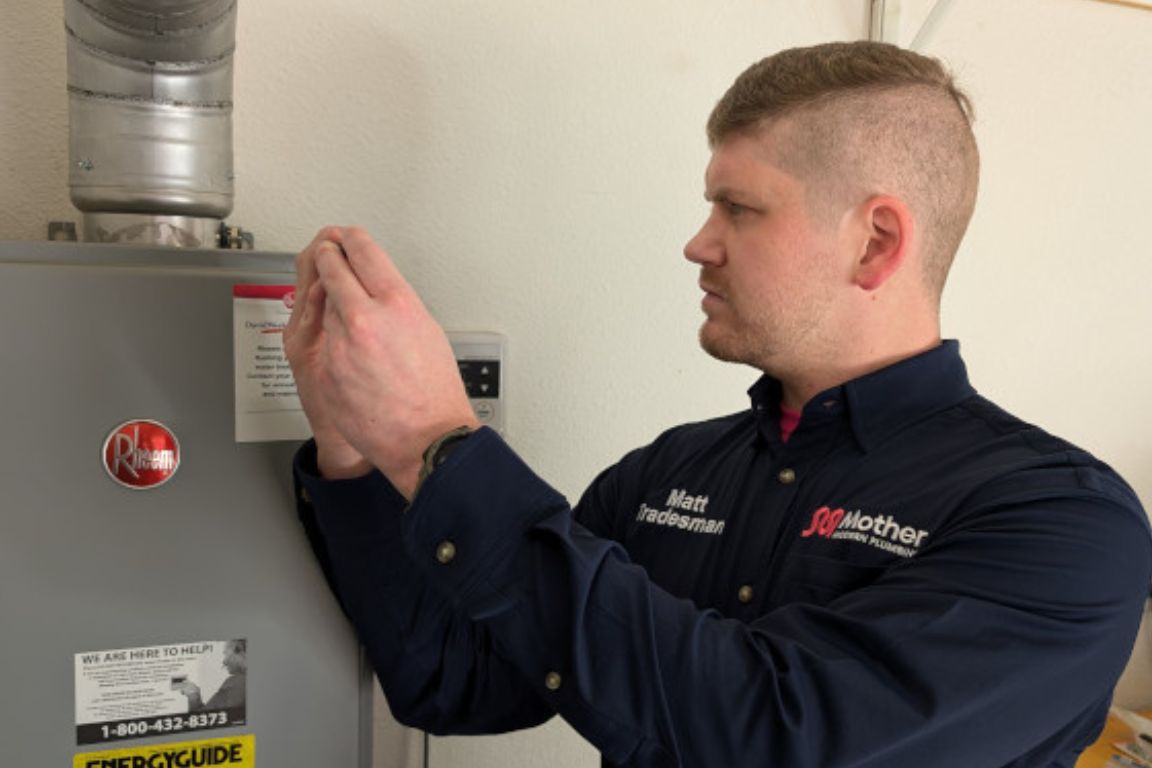
Switching to a gas tankless system provides the highest financial and performance returns in specific scenarios, especially when your usage is high and your home infrastructure minimizes installation costs.
1. You’re already on a natural gas or propane system.
Your utility room is on an exterior wall or directly below the roof, simplifying the installation of expensive Category III stainless steel venting or PVC.
- Why you’ll benefit: If your existing gas line is already sized larger than average (a rare but lucky bonus), you save the significant cost of running a new, dedicated gas line from the meter.
2. Your household uses a lot of water.
You have a large family (4+ people), high concurrent usage (e.g., teenagers taking showers while the washing machine and dishwasher run), or own a deep tub that runs your tank dry.
- Why you’ll benefit: High use maximizes the financial benefit of eliminating standby loss, accelerating your ROI. “You may need two of them depending on the number of bathrooms, but that’s the case with any tankless,” Steven says. “They go up to around 10 gallons per minute in optimal conditions.”
3. Natural gas is pretty cheap where you live.
You live in a region with low natural gas costs relative to electricity prices, or your usage is high enough (daily long showers) to make the fuel savings pronounced.
- Why you’ll benefit: Choose a condensing gas unit, which captures and reuses exhaust heat. You’ll see efficiency ratings up to 96%, maximizing your monthly utility savings.
4. Your existing gas water heater tank is 12+ years old.
Your existing gas tank is 12+ years old and is only getting less efficient.
- Why you’ll benefit: Moving from an old, drafty tank to a modern condensing unit is one of the biggest efficiency jumps a homeowner can make, offering immediate and significant fuel savings.
Our Master Plumber’s Top Gas Tankless Systems

Our Master Plumber gave us his top recommendation for gas tankless water heaters in one word: “Rinnai”.
“I like what they deliver and the brand’s experience to back it up,” Steven says. Rinnai’s high-efficiency tankless models are among the best at delivering continuous hot water and reducing energy bills.
Steven suggests Rinnai tankless models with built-in recirculating pumps to improve efficiency, especially to homes with a large number of shower heads and faucets.
Steven’s also keeping his eye on A.O. Smith and State Water Heaters products, and their evolving X3 Scale Prevention Technology. X3 offers a built-in descaling process- this allows your tankless to clean itself, reducing the need for annual descaling and flushing maintenance.
“I like what they’re promising,” Steven explains. “I just need to see more.”
{{never-descale-tankless-water-heater-again="/blogs/never-descale-tankless-water-heater-again"}}
Gas Tankless Water Heaters: A Smart Call for Most Homes
Gas tankless water heaters are highly preferable to electric units for their lower upfront installation cost, less expensive upgrades to your home’s infrastructure, and greater ability to pay themselves back in 6-10 years.
The high BTU demands of gas systems help offset electricity consumption, which allows large homes to keep utility costs down while delivering enough hot water for multiple showers, dishwashing cycles and laundry use.
Our Master Plumbers prefer Rinnai tankless systems for gas-powered homes. Annual descaling and flushing maintenance is vital to maintain peak efficiency.
Dallas: ready to go tankless? Call Mother 24/7 to talk to our gas water heater experts, and schedule your priority consultation!
{{tankless-water-heater-installation="/services/tankless-water-heater-installation"}}
Common Q’s about Water Heaters
Do tankless water heaters lower your home insurance?
Tankless water heaters can reduce insurance premiums due to the reduced risk of not having a full tank in your home. Ask your insurance agent if any premium discounts apply to new water heater installation.
Are tankless water heaters more efficient than tank water heaters?
Yes, the U.S. Department of Energy reports that tankless water heaters are up to 34% more efficient than tank water heaters. That's because tankless heaters don’t store water. Instead, they heat water on demand and only when needed.
Can I get a tax credit for a tankless water heater?
Yes, natural gas tankless water heaters installed between 2023 and 2032 are eligible for the EnergyStar Energy Efficient Home Improvement Tax Credit. It covers 30% of the total installation cost up to $600. ENERGY STAR rated tankless water heater models with ≥ 0.95 UEF are eligible.
What are the most common tankless water heater repair types?
A majority of tankless water heater repairs (especially in DFW) involve one of these six key issues:
- Descaling due to mineral buildup
- Ignition system issues (blocked sensors)
- Blockages of vents
- Faulty flow sensors
- Leaks from a damaged heat exchanger or valves
- Damaged gas flexes and closed valves (gas units)
Why are electric tankless water heaters not advisable for Dallas?
We almost never recommend electric tankless water heaters for Dallas area homes due to their incredibly high energy consumption. The cost to upgrade your home's electrical infrastructure is huge, and leaves most DFW homeowners unable to ever achieve total product payback.
Why are gas tankless water heaters best for Dallas homes?
Unlike electric tankless units, natural gas tankless systems have a lower upfront installation cost- less expensive infrastructure upgrades are needed. It's also cheaper to run natural gas or LP tankless units in the DFW Metroplex. This leaves homeowners far more likely to see real long-term savings during ownership.


